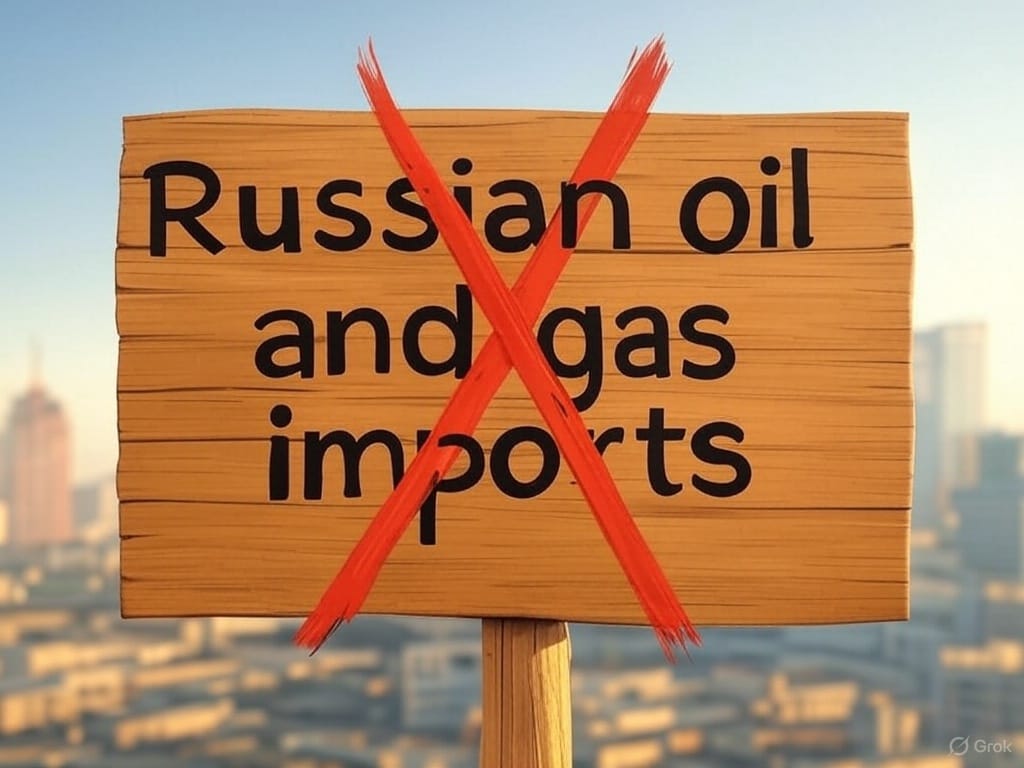- Shortlysts
- Posts
- European Commission Plans to End Russian Oil and Gas Imports
European Commission Plans to End Russian Oil and Gas Imports
European Commission announces it will publish a plan on May 6th to begin phasing out oil and gas purchases from Russia

What Happened?
The European Commission announced it will publish a plan on May 6th for gradually halting Russian oil and gas imports to the European Union. Originally scheduled to be published this month, the plan reportedly will offer a detailed roadmap for Europe to cease all imports of oil and gas from Russia by 2027.
In 2022, the European Union pledged to phase out Russian oil and gas imports by 2027 in response to Russia’s invasion of Ukraine.
Why it Matters
The European Union tends to move slowly when making major policy decisions. So, the previous delays in announcing the specifics of how they will stop importing oil and gas from Russia are not surprising. Part of the reason for the slow decision making is that the EU requires unanimous approval from its members for new policies, so even one dissenting voice can bring the entire process to a halt.
In 2024, Europe purchased more than twenty billion dollars’ worth of oil and gas from Russia, which is just under one percent less than in 2022. While European leaders have expressed a desire to wean themselves off Russian fossil fuels, to date they have not done so. Still, if the new roadmap is published on May 6th, it could represent the first concrete step for the EU towards abandoning Russia as a fossil fuel supplier.
For the United States, such a chance could represent an opportunity. If Europe stops buying oil and gas from Russia, that demand will have to be met by other suppliers. American oil and liquid natural gas production has surged in the past decade, which means the U.S. is well-positioned to increase exports to Europe.
Russia has been successful in finding ways around sanctions on its exports of oil and gas. While the loss of Europe as a customer would hurt, Russia’s largest buyers are China and India. Both of whom are likely to increase the amount the purchase from Russia in the next decade. By selling more oil and gas to China and India, Russia could offset most of the losses it would face from a European boycott.
In addition, hundreds of Russian oil tankers, known as its shadow fleet, continue to move large amounts of oil to countries who are not participating in the American and European sanctions. According to the Center for Research on Energy and Clean Air, Russia operates nearly six hundred shadow tankers that transport eighty billion dollars of oil and gas exports annually.
How it Affects You
The increase in U.S. production of oil and gas, at a time when Europe wants to abandon Russia as a supplier, could create a significant new business relationship between American producers and European consumers. Despite contentious politics of late, new economic opportunities could forge even closer ties between Europe and the United States.